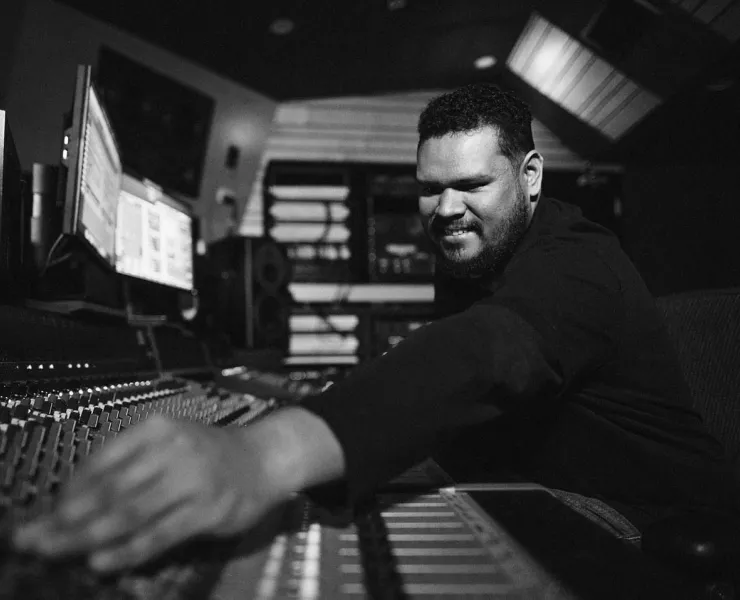Breadcrumb
Space to Create: First Nations Music Residency
Key dates
Applications open: Thursday 18 September 2025
Applications close: Tuesday 11 November 2025 (3pm AEST)
Notification date: Early January 2026
Activity period:
Group Residency: 16 March 2026 - 21 March 2026
Individual Residencies: 23 March 2026 - 19 Oct 2026
Contact
Joseph Clarke
Project Manager
First Nations Arts and Culture
Email: joseph.clarke@creative.gov.au
If you need help with your application, please call or email us.
Please note: Are you registering to use our Application Management System for the first time? Make sure you register well before the closing date. It can take up to two business days to process your registration.
About the opportunity
Space to Create: First Nations Music Residency is an immersive residency program for emerging and established First Nations musicians, producers, and songwriters to dedicate focused time to the development of their music practice. Participants will have access to professional recording studios, tailored mentoring, and workshops with leading industry professionals.
Delivered in partnership with the Australian National University’s School of Music and the Yil Lull (“To Sing”) Recording Studio, the residency is underpinned by music, culture, and community, and is designed to support sustainable pathways within the music industry.
The program provides a dedicated environment for eight selected participants to expand their creative ideas, collaborate with peers, and strengthen their artistic practice. Activities will include composition, voice coaching, technical skill development, and professional learning opportunities to support long-term career growth.
Program details
- Eight (8) First Nations creatives will be selected for this opportunity.
- The residency is delivered across two stages:
Stage 1: Group Residency
- Location: ANU School of Music, Canberra
- Dates: 16 March – 21 March 2026
- Details: A one-week intensive with other First Nations artists, featuring workshops, recording sessions, mentoring, and masterclasses to help you build community, share knowledge, and strengthen your creative practice.
Stage 2: Individual Residency
- Location: ANU School of Music, Canberra
- Date range: Between 23 March and 25 October 2026
- Details: One week of focused studio and project time with tailored mentoring and technical support.
Please note: You must attend both stages to take part in the program.
What’s provided
Space to Create will provide:
- Travel, accommodation, daily allowances, and local transport.
- A participation fee to support your time and commitment.
- Access to the Yil Lull First Nations Recording Studio, including:
- Studio control rooms and professional software.
- Mastering and video editing suites and resources.
- Technical and production support from Senior Technical Officer.
- Mentoring from respected First Nations music industry professionals.
- Industry masterclasses and creative labs across the School of Music to build skills and networks.
In partnership with:

About the ANU School of Music and the ANU Yil Lull Studio
Situated on Ngunnawal-Ngambri country in the heart of the nation’s capital, and on the campus of Australia’s foremost research university, the School of Music at ANU has a proud and rich history. For nearly 50 years the school has played a leading role in the cultural life of Canberra and the surrounding region.
ANU is home to the Yil Lull First Nations Recording Studio, which offers free recording and music assistance to First Nations musicians from across Australia. The studio is named after the song Yil Lull (‘To Sing’) by legendary First Nations musician Joe Geia, to honour his standing in the industry, and is used with his permission.
The Yil Lull First Nations Recording Studio was established in 2021, the studio is led by Senior Technical Officer, Torres Strait Islander musician Will Kepa. Will’s vision for the studio is to be “a place for us, our mob, to come and meet; to create and to share; to expand on our stories; to keep our culture alive and our music alive; and to just keep that fire burning”.
This new initiative is part of Creative Australia’s First Nations First industry development programs. The programs have been developed in response to extensive community consultation on priorities and needs of the sector in response to Pillar 1, First Nations First – Revive, the Australian Government’s shared vision for Australia: a place for every story and a story for every place. These new initiatives aim to elevate existing programs and deliver new funding that build on a 50-year legacy of First Nations leadership and investment at Creative Australia.
How to apply
To apply log in here to our Application Management System (AMS) if you have an account. You can create an account if you do not already have one.
Once you have logged in, follow the next steps:
- select ‘Apply for a Grant’ from the left panel menu
- from the list of opportunities select ‘Space to Create’
- complete the fields and select answers with dropdown menus
- upload any necessary support material
- select ‘Save’ once complete
- if you are not ready to submit your application, you can return to it through ‘Your Draft Applications’ in the left panel menu at a later date
- otherwise select ‘Submit’.
Eligibility
Who can apply?
This program is open to:
- First Nations artists, musicians, composers, producers, audio engineers, and music industry workers.
- Applicants over 18 years of age.
- Australian citizens or permanent residents.
Please note:
- You can only submit one application per year for Space to Create: Music Residency round.
Who cannot apply?
You cannot apply for this grant if:
- You are not an Australian First Nations practising artists or arts professional.
- You are a group or organisation.
- You are based outside Australia.
- You have an overdue grant report.
- You owe money to Creative Australia.
- You are an artist manager or agent.
What the opportunity can be used for
Residency time and support can be used for many types of projects, including:
- Developing an album or EP.
- Working with a producer.
- Cross-disciplinary projects (music with film, theatre, dance, etc.).
- Writing music for film, television, or theatre.
- Recording, mixing, mastering, or production work.
- Expanding your vocal or instrumental practice.
- Exploring cross-genre or experimental projects.
- Strengthening industry knowledge and career planning.
Application form
The application form is your chance to tell us about yourself and your ideas.
We’ll ask you to:
- Provide a brief description of your artistic and/or professional practice.
- Describe how Space to Create will enhance your artistic practice.
- Describe how Space to Create will contribute to your professional development.
- Supporting material as relevant to your project, (see support material section).
Protocols
Your application must comply with the following protocols. We may contact you to request further information during the assessment process, or if successful, as a condition of your funding.
-
Protocols for using First Nations Cultural and Intellectual Property in the Arts
If your application involves working with other First Nations artists, arts and culture workers, communities, or subject matter you must adhere to these Protocols, and provide evidence of this in your application and support material. More information on the First Nations Protocols is available here.
Assessment
How applications will be assessed
A First Nations Industry Advisory Panel will review applications against three key areas:
- Quality
- Strength of your vision and ideas.
- Creative thinking and skills.
- Cultural expression in your work.
- Quality of past work.
- Impact
- How the residency will support your artistic growth.
- The importance of the project to your practice.
- Effective use of residency resources.
- Potential to develop new skills and networks.
- Viability
- Why this is the right time for you to participate.
- Evidence of cultural protocols, where relevant.
Support material
You should submit support material with your application. The Industry Advisory Panel may review this support material to help them gain a better sense of your activity and arts practice.
We do not accept application-related support material submitted via post. Application-related material received by post will not be assessed and will be returned to the sender.
If you think you will have difficulty submitting your support material online or need advice on what type of material to submit, please contact Joseph Clarke, Project Manager, First Nations Arts and Culture.
There are three types of support material you may submit:
- artistic support material
- biographies and CVs
- letters of support
Artistic support material
This should include relevant, recent examples of your artistic or cultural work.
Types of support material we accept
Our preferred method of receiving support material is via URLs (weblinks).
You can provide up to three URLs (weblinks) that link to content that is relevant to your project activity. This may include video, audio, images, or written material.
These URLs can include a total of:
- 10 minutes of video and/or audio recording
- 10 images
- 10 pages of written material.
Please note: The Advisory Panel will not access any URLs that require them to log in or sign up to a platform. Please do not provide links to Spotify or other applications that require users to log in or pay for access. If you are linking to media files that are private or password protected like Vimeo, please provide the password in the password field on the application form.
Other accepted file formats:
If you cannot supply support material via URLs, you may upload support material to your application in the following formats:
- video (MP4, QuickTime, and Windows Media)
- audio (MP3 and Windows Media)
- images (JPEG and PowerPoint)
- written material (Word and PDF).
Biographies, Headshots and CVs
You can include your current brief bio or curriculum vitae (CV) that is relevant to your application. You will be required to supply a photograph – headshot, you can include this in your application.
Please note: Brief bios or CV information should be presented as a single document no longer than two A4 pages in total.
Letters of support
Individuals, groups or organisations can write letters in support of your project. A support letter should explain how the project or activity will benefit you, other artists or arts professionals, participants or the broader community. It can also detail the support or involvement of key project partners, or evidence of consultation.
If relevant to your activity, letters of support must provide evidence of appropriate permissions and support from First Nations organisations, communities, and Elders. Please refer to the First Nations Protocols for more information.
You can include up to five letters of support, with each letter not exceeding one A4 page.
Previous recipients
2024 recipients
- Nidala Barker
- Lilly Gogos
- Normey Jay
- Georgia Llewellyn
- Russell Smith
- Cloe Terare
2025 recipients
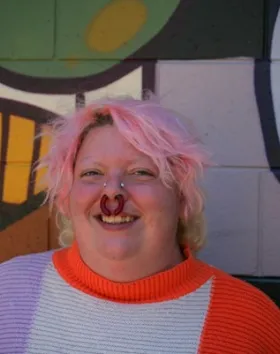
Bedlam Rigney
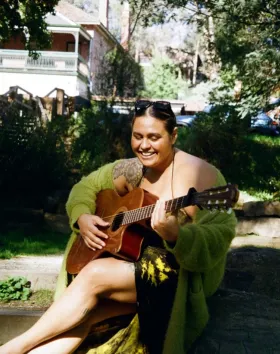
Kirsty Burchill
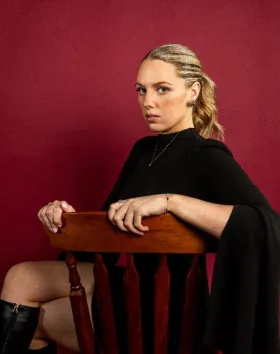
Canisha Clemmet-kennedy
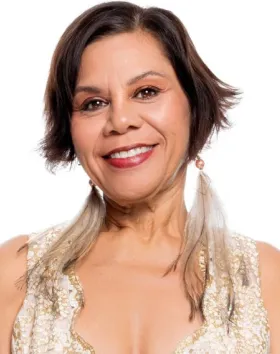
Toni Janke
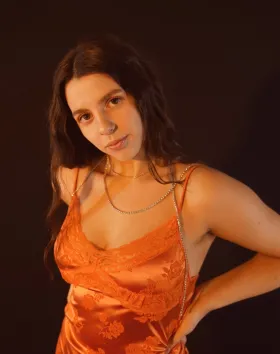
Kaytlyn Johnson
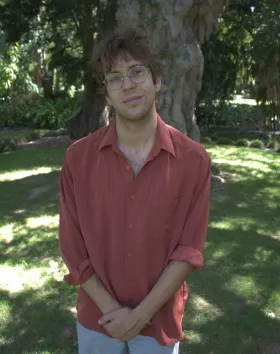
Davin Ojala
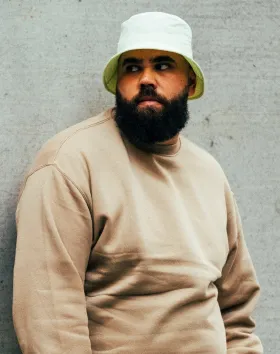
Blake Rhodes
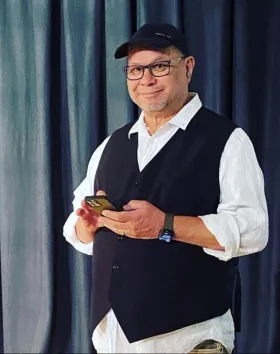
Troy Russell
Frequently asked questions
Who can apply?
First Nations musicians, songwriters, audio engineers, producers, and music industry professionals at any career stage are welcome to apply. Whether you’re just starting out or have been working in music for years, this program is about supporting your artistic and professional growth.
Do I need to have a finished project idea to apply?
Not at all. You can apply with a project already underway, or simply an idea you’d like to explore further. What matters most is telling us how this opportunity will help you develop your practice and career.
What costs are covered?
All accommodation, travel, meals, and program costs are covered for successful participants. The program is fully supported so you can focus on your music and creative development.
Can I choose when I return for the second week?
Yes. If selected, you’ll take part in the first week of residency in March, then choose one of the following weeks to return:
- March 23–29
- April 20–26
- May 25–31
- June 22–28
- July 27–August 2
- August 24–30
- September 21–27
- October 19–25

